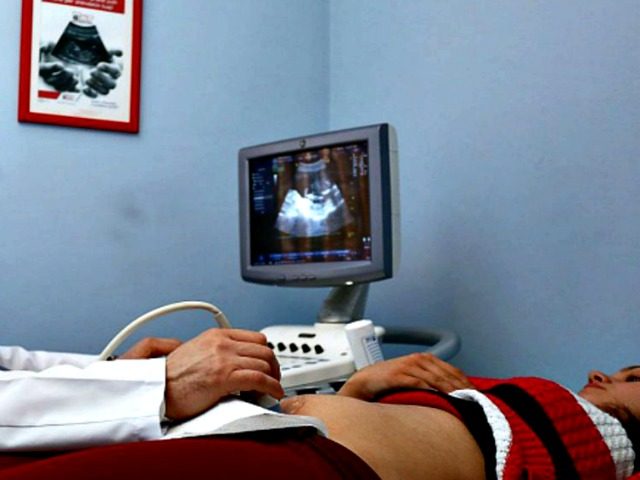The Supreme Court announced in a surprising order on Friday that it will decide whether the Texas Heartbeat Act – including the law’s provision allowing private citizens to bring suit against abortion providers – is permitted by the U.S. Constitution.
The legislation, which was signed by Texas Gov. Greg Abbott (R) in May and went into effect on September 1, bans abortions after a fetal heartbeat is detected, which is usually around six weeks gestation. Since women do not often detect pregnancy prior to the sixth week, the law effectively bans abortions in the state.
The law is different from other pro-life legislation tried in the past, in that the general public — instead of the government — can enforce it. Any private citizen may file a civil lawsuit against an abortion provider or any other individual who “aids or abets” a “criminal abortion.” Abortionists and those who “aid or abet” an abortion after a fetal heartbeat is detected must pay damages of at least $10,000 for each abortion performed or assisted.
The Supreme Court granted review – called a writ of certiorari – sought by several abortion clinics, including Whole Women’s Health and various Planned Parenthoods, and will hear oral arguments on November 1. The Court has been asked to decide whether a state can keep federal courts from reviewing a law that prohibits the “exercise of a constitutional right” by giving the general public authority to enforce a law through civil actions. The Court will also decide whether the Department of Justice has the right to sue the state in order to block the law.
Petitioners are also arguing that the Texas Heartbeat Act, formally known as S.B. 8, is in violation of Supreme Court precedents holding that a state cannot prohibit abortion at a point before viability. The cert petition contends:
To try to insulate this unconstitutional prohibition from a federal challenge, the legislature crafted the law to prohibit government officials from directly enforcing it and instead delegated enforcement to the general public via civil actions that ‘any person’ can file in Texas state court.
Although the Supreme Court granted writ of certiorari several times during the Trump administration, typically multiple years pass without the justices short-circuiting the normal process of appellate review.
On October 15, a three-judge panel of the U.S. Court of Appeals for the Fifth Circuit voted 2-1 to temporarily reinstate the law while appeals are ongoing, reversing a lower court’s ruling that had blocked enforcement of the pro-life law. The federal appeals court ruled that the Texas Heartbeat Act can remain in effect while litigation continues over whether the law is constitutional.
The Supreme Court previously ruled 5-4 in September not to block the law while legal challenges proceeded in lower courts. Abortion providers have claimed the law heavily reduced abortion access and goes against Supreme Court precedent set by Roe v. Wade in 1973. Woke companies, celebrities and leftist politicians alike have expressed outrage at Texas’s pro-life law as an attempt by Republicans to control women’s bodies. Pro-life organizations, in contrast, have celebrated the Texas Heartbeat Act for recognizing and protecting the personhood of unborn children.
The State of Texas has asked the Supreme Court, “if it reaches merits,” to consider overturning Roe v. Wade and Planned Parenthood v. Casey, both decisions which declared abortion to be protected by the U.S. Constitution.
The case is Whole Woman’s Health v. Jackson, No. 21-463 in the Supreme Court of the United States.

COMMENTS
Please let us know if you're having issues with commenting.